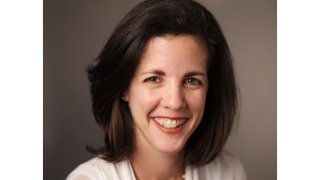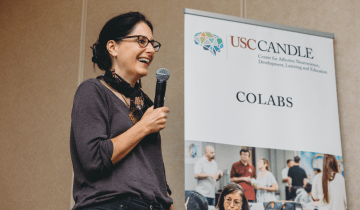USC Rossier Associate Professor Julie Marsh and PhD student Michelle Hall served on a team of independent researchers who gathered data for a new report assessing early implementation of the Local Control Funding Formula (LCFF), California’s new funding and accountability system.
In Toward a Grand Vision: Early Implementation of California’s Local Control Funding Formula, co-authors Daniel Humphrey, senior researcher at SRI, and Julia Koppich, from Koppich and Associates, drew on research from Marsh and Hall of USC Rossier as well as experts from Inverness Research and San Diego State University.
According to Claremont University Professor Charles Kerchner’s Education Week blog, “The report provides the first solid evidence that school districts are reacting to the LCFF program in the ways that the designers of the legislation intended.”
LCFF provides districts with additional resources to meet the needs of students from low-income families, English-language learners and foster youth while giving districts the authority and flexibility to determine how their state funds should be used. The new policy also requires districts to engage local stakeholders in these allocation decisions.
Marsh, Hall and the other researchers derived their findings from interviews with state policymakers and staff, school district and county office of education leaders and staff, school board members, union representatives and parents. The researchers also reviewed documents related to the development, requirements and implementation of the LCFF, as well as more than 40 Local Control Accountability Plans (LCAPs) from a wide range of school districts across the state.
Marsh says that administrators have embraced local control. “They were grateful for the shift in the accountability relationship with the state and the ability to move from a system of compliance and accounting for inputs to a new system of accounting for outcomes with flexibility to spend funds in the ways they believe will best achieve those results,” she said.
And yet the report pairs this optimism with concerns about the longevity and sustainability of the policy. These same enthusiastic administrators fear the state might add new requirements, compromising the flexibility promised by local control. A policy shift such as LCFF requires patience, urges the report, and some worry that the state will not allow districts the time needed to adjust to the new policy.
Marsh sees lessons in some of her earlier research. Back in 2010, she followed a shift in state policy allowing for flexible use of “Tier 3” categorical program funds.
“Much like that earlier research,” she says, “in this new study we found that given the serious financial strain many districts had experienced, the new flexibility was frequently used for ‘restoration.’ While the hope is that over time districts will begin to use the flexibility to develop new programs and adjust core services to meet local needs, right now many district were still recovering from the recession and used the new funds and flexibility to address structural deficits, restore instructional days and staff that had been let go, and raise teacher salaries.”
As for Hall, she will continue to watch closely as she completes her dissertation on LCFF with Marsh as her advisor.
The Stuart Foundation and the Heising-Simons Foundation provided funding for the project.




